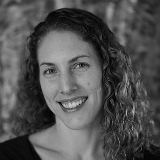
Katherine R. Amato
About
Katherine Amato is a biological anthropologist studying the gut microbiota in the broad context of host ecology and evolution.
She is a trained field primatologist, and her perspectives on physiology, plasticity and fitness in this environment inspired her interest in host-gut microbe interactions. She is particularly interested in bringing a global health perspective to human microbiome research by describing how changes in the gut microbiota impact nutrition and health in human populations around the world, and pinpointing the social and biological mechanisms that lead to these changes.
Amato’s current research focuses on microbial contributions to host nutrition during periods of food shortage or increased nutritional demands (e.g., pregnancy), as well as microbial influences on growth, brain metabolism, obesity and metabolic disease. She also uses non-human primates as models for studying host-gut microbe interactions in selective environments, and to determine whether the human gut microbiota has characteristics that are unique among primates.
Awards
- University of Michigan Early Career Scientists Symposium, Invited Speaker, 2015
- TEDx Jackson Hole Speaker, 2015
- National Geographic Young Explorer, 2007
- Fulbright Garcia-Robles Fellow, 2007
Relevant Publications
Amato, K.R., Mallott, E.K., McDonald, D., et al. (2019). Convergence of human and old world monkey gut microbiomes demonstrates the importance of human ecology over phylogeny. Genome Biology, 20(1), 201-213.
Amato, K.R. (2019). Missing links: The role of primates in understanding the human microbiome. mSystems, 4, ee00165-19.
Amato, K.R., Sanders, J., Song, S.J., Nute, M., et al. (2019) Evolutionary trends in host physiology outweigh diet in structuring primate gut microbiomes. ISME J. 13(3), 576-587.
Mallott, E,K., & Amato, K.R. (2018). The microbial reproductive ecology of white-faced capuchins (Cebus capucinus). American Journal of Primatology, 165(3), 576-588.
Amato, K.R. (2016) Incorporating the gut microbiota into models of human and non-human primate ecology and evolution. Yearbook of Physical Anthropology, 159, 196-215. DOI: 10.1002/ajpa.22908